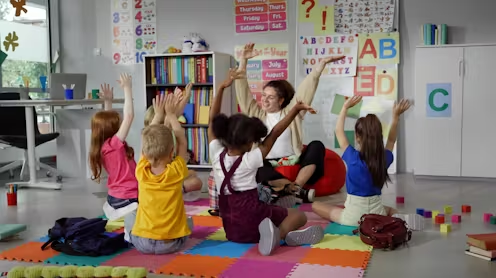Scotland’s approach to special needs education is more inclusive than the rest of the UK – but it doesn’t always work in practice


Across the UK, how children are identified with special educational needs, and how they are then supported, differs according to where they live. There are broad similarities in the approaches in Wales, England and Northern Ireland. But in Scotland things are done differently.
Northern Ireland, Wales and England define children with learning needs as those who have significantly greater difficulty in learning than their peers.
Scotland takes a more distinctive approach, using the term “Additional Support Needs” (ASN). A child or young person has ASN if they are unable, without the provision of additional support, to benefit from the school education provided.
This much broader definition means that there is a wide range of reasons a learner could have ASN. These could be permanent or temporary in nature: they could be, for instance, experiencing family bereavement or bullying. Unsurprisingly, Scotland’s broader definition has meant that it has a significant proportion of learners identified with ASN – 37% in 2023.
Across a wide range of policy documentation, inclusive education in Scotland is understood broadly to encompass an extensive range of issues, such as addressing discrimination more widely – not just related to disability.
This is underpinned by a presumption of mainstreaming in Scottish law. This is the assumption that, with the exception of specific circumstances, children identified with additional support needs will be educated in mainstream schools.
There is a broad consensus from parents, children, teachers, politicians and others that the Scottish approach to inclusive education is the correct way forward. However, there is significant divergence between policy intent and practice.
An independent 2020 review investigated how provision for additional support needs worked in practice – and found many failures.
The review showed that the needs of children and young people for additional support were not being met adequately. There were disconnects between the system’s intentions and what children and young people were actually experiencing.
The report established that not all children, young people and those who support them flourish or are equally valued within the education system. Their voices are not being heard by those who have the power to make a difference. Service providers and senior leaders in schools experience significant challenges in being able to meet needs, but this is not recognised sufficiently at a higher level.
A subsequent inquiry, concluded in 2024, found many reasons for this divergence between policy and practice. These included a lack of resources, the need for ongoing professional training for school staff and issues with school culture.
The inquiry heard that resourcing for Additional Support for Learning had decreased over time. It found that many recently built schools had not been designed to be accessible to all. It heard about the need for school leaders to have training which has equity, inclusion and social justice at its heart to effect the necessary cultural change.
Across the UK and in Ireland, an issue of concern is the lack of a clear definition of what inclusive education means and entails and how it should be implemented in practice. This is reflected in the current crisis in the growing demand for specialist provision.
A recent review of special educational needs education in England by the National Audit Office has pointed out that mainstream schooling needs to be much more inclusive, that schools are not incentivised to prioritise it, and that the Department of Education should “develop a vision and long-term plan for inclusivity across mainstream education”.
In Scotland, in contrast to the other nations, greater attention has been devoted to coming to a shared understanding of what an inclusive education system constitutes. This is reflected within the National Framework for Inclusion, the third edition of which was published in 2022. This framework underpins the professional standards for teachers and informs policy more generally.
The Framework, produced under the auspices of the Scottish Universities Inclusion Group and influenced by the work of inclusive education expert Lani Florian and colleagues on inclusive pedagogy, offers a series of reflective questions to promote inclusive practice. This is indicative of a more consensual and collaborative approach towards educational policy making in general. But it is clear that more work needs to be done to make this understanding of inclusivity a widespread reality in schools.
The differences in policy approaches to additional support and learning needs mean that the profile of a child identified with special educational needs will vary depending on which country they live in. Furthermore, the variations in the education systems themselves will affect the child’s placement and the support they may receive.
Collaborative cross-nation work is essential to gain a stronger understanding of the strengths and weaknesses of different approaches to meeting the additional learning needs of children and young people.